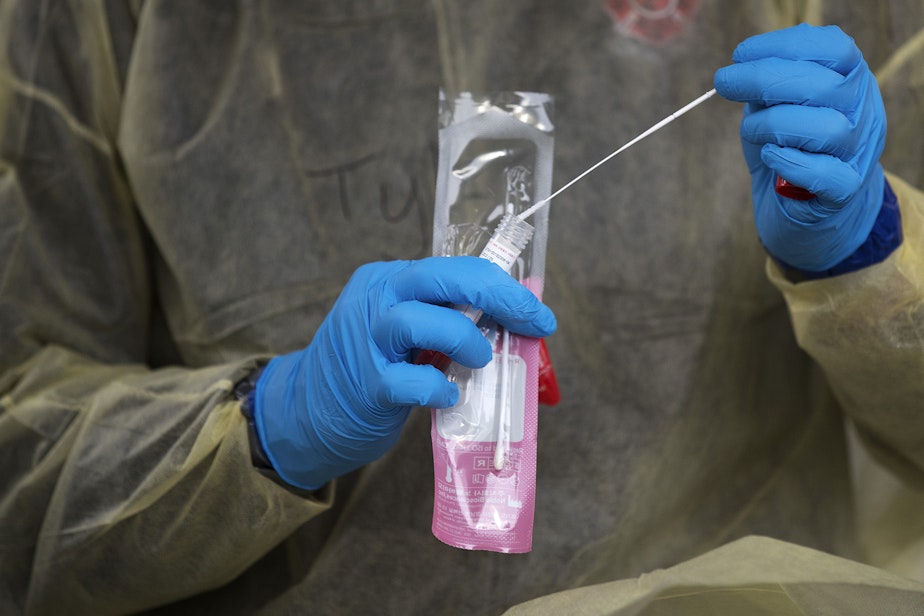WA Covid testing program could teach us more about the virus in schools

A new partnership with Seattle Children's Hospital will bring 300,000 rapid Covid-19 tests to elementary schools in 10 districts in March.
Congresswoman Dr. Kim Schrier announced the program after securing the tests from the U.S. Department of Health and Human Services.
This is in addition to piecemeal efforts by the state to expand rapid testing programs in schools.
Seattle Children's Hospital will run the program, with aim of testing school staff and students with parental consent once a week. It will be on a voluntary basis.
The hospital will analyze the results to determine the prevalence of Covid-19 in schools; a data gap that Schrier says has left teachers across the country reluctant to return to classrooms.
Schrier is a Democrat representing the 8th Congressional District, east of Seattle.
The goal is to "get a feel for what in-school prevalence and transmission looks like," she said. "And the more data we have, the more confident we can feel in getting our kids back in school safely and reassuring staff that they will be safe in school as well."
The pilot program will begin next week in the Auburn School District and is expected to reach 139 schools across 10 districts throughout March.
Seattle Children's Hospital will collect and analyze data to help inform how students can return to classrooms across the country. Schrier says she would expect findings within a few months.
Schrier says the program is starting with elementary school students as they are expected to return to classrooms first, ahead of middle and high school students. But the idea is to eventually test older students, too.
"The data to date is that elementary students and schools are actually safer," Schrier said. "It's going to be critically important to get these into middle and high schools, because they are more like adults. They get the disease and spread the disease more readily."
Ideally, Schrier says, testing would be done at home to catch students before they even get to school. She is meeting with the U.S. Food and Drug Administration this week to explore that possibility.





